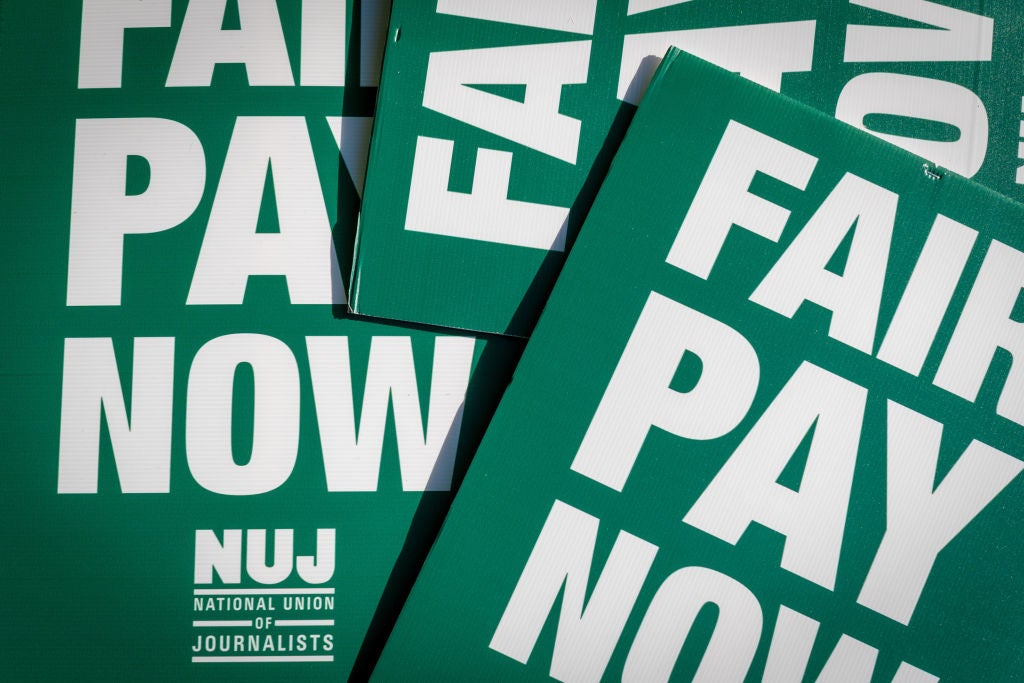
BBC-funded Local Democracy Reporters working at various publishers have complained of low pay and being asked to write stories outside their brief.
The Local Democracy Reporting Service is an effort to fill gaps in the UK’s regional public service reporting. Under the current contracts, 18 media companies employ 165 LDRs to cover patches across the UK, producing stories that are distributed for free to the BBC and more than 1,000 other news titles around the country.
The BBC is due to retender contracts for the scheme next year.
Publishers who successfully bid for LDR contracts are provided approximately £38,000 (outside London) or £40,500 (inside) by the BBC annually to cover the expenses associated with employing each reporter, including salary, national insurance and management costs.
The contracts also stipulate minimum salaries for LDRs of around £24,000 outside London and £27,000 inside. The differences between the stipulated minimum salaries and the total sums allotted by the BBC have previously led to clashes between the NUJ and LDR contract holders: the union accused Newsquest last year of withholding BBC cash from its reporters, which the company and two peer organisations disputed.
Under the terms of the contracts LDR salaries are guaranteed to increase by either 1.5% or in line with the retail prices index — whichever is less. LDR partners may increase pay above this rate at their discretion, however, and indeed the largest LDR contract holder, local publishing giant Reach, was paying non-trainee LDRs outside London a £31,200 minimum last year.
The NUJ said in a statement following a recent Local Democracy Reporter summit there are “significant differences in rates offered journalists carrying out the same work across different locations.
“Employers are expected to pay, as a minimum, their own salary levels if they are higher than the BBC set minimum. However, the NUJ has highlighted an existing lack of transparency by many LDRS suppliers on approaches to regional and local pay.
“In some cases, LDRs have been given only the 1.5% uplift in April when their newsroom colleagues have received higher annual pay increases. LDRs of similar experience can be paid about £5,000 more than colleagues elsewhere in the same group.”
The union has called on the BBC to stipulate that LDRs “cannot be given less than the general pay increase enjoyed by their colleagues” and to make sure that “local minimum pay rates of suppliers are transparent to their workforce so LDRs can be assured contractual arrangements involving public money are being adhered to”.
Asked about the NUJ criticisms, a spokesperson for the BBC said: “The BBC is completely committed to the ongoing success and development of the LDRS, and we will shortly be announcing a new funding model for the 2025-2027 contract period.
“As part of that process, the BBC remains in discussion with industry partners to ensure increased funding is reflected in salary levels.”
Some Local Democracy Reporters report being pushed to do stories outside their contracted beat
As well as the pay issues, the union said it was “increasingly concerned” at reports from LDRs at the recent LDR Summit that they were being pushed to publish more than the maximum 40 stories a month they are contracted for, and that some had been used “as substitute reporters” to cover things that would typically be assigned to a non-LDR journalist.
Chris Morley, the NUJ’s northern and Midlands senior organiser, said in the statement: “The number of LDR members at our summit and their geographical and employer spread meant this was a representative snapshot of what is happening on the ground in the LDRS.
“It was tangible that many LDRs felt they were being unreasonably pushed around to do things that were of dubious relevance to the LDRS and its original brief. There was frustration that publishers were seeking to extract more and more from them to the obvious detriment to the founding principles of the scheme and other partners of the service.
“Our members feel the BBC is not doing enough to keep its contractual obligations adhered to and in reality are presiding over a laissez faire, permissive regime where the boundaries are being constantly pushed to the expense of the core duty to provide unique content public interest journalism.
“The upcoming retendering process is a golden opportunity for the BBC to reset the service to solve the pay anomalies for LDRs and to make sure the journalistic success of the scheme is not tarnished by any selfish opportunism of suppliers.”
What Local Democracy Reporters say
One Local Democracy Reporter, who works at a National World title, told Press Gazette they had been stuck near the minimum BBC-stipulated salary for years.
They said: “I’ve been ‘lucky’ in that usually I do have the time to pursue stories and haven’t felt pressured to do much outside of the LDRS remit. And when that has happened, I’ve usually stated that it’s not in the remit, and that’s fine.”
But they added that on papers such as theirs “where roles have been cut year after year, there is, I find, a pressure to not let the team down and sometimes that means writing up a press release that I normally wouldn’t have covered”.
A Reach LDR who spoke to Press Gazette said the situation described by the NUJ did not match their experience. They were not under pressure to write high-traffic stories and that they have been able to push back when editors have “overstepped the mark”.
“My only minor complaint is they could pay us more,” they said. “I have thought about retraining and doing something with a higher salary. But I enjoy the job quite a lot to be honest.”
Email pged@pressgazette.co.uk to point out mistakes, provide story tips or send in a letter for publication on our "Letters Page" blog
